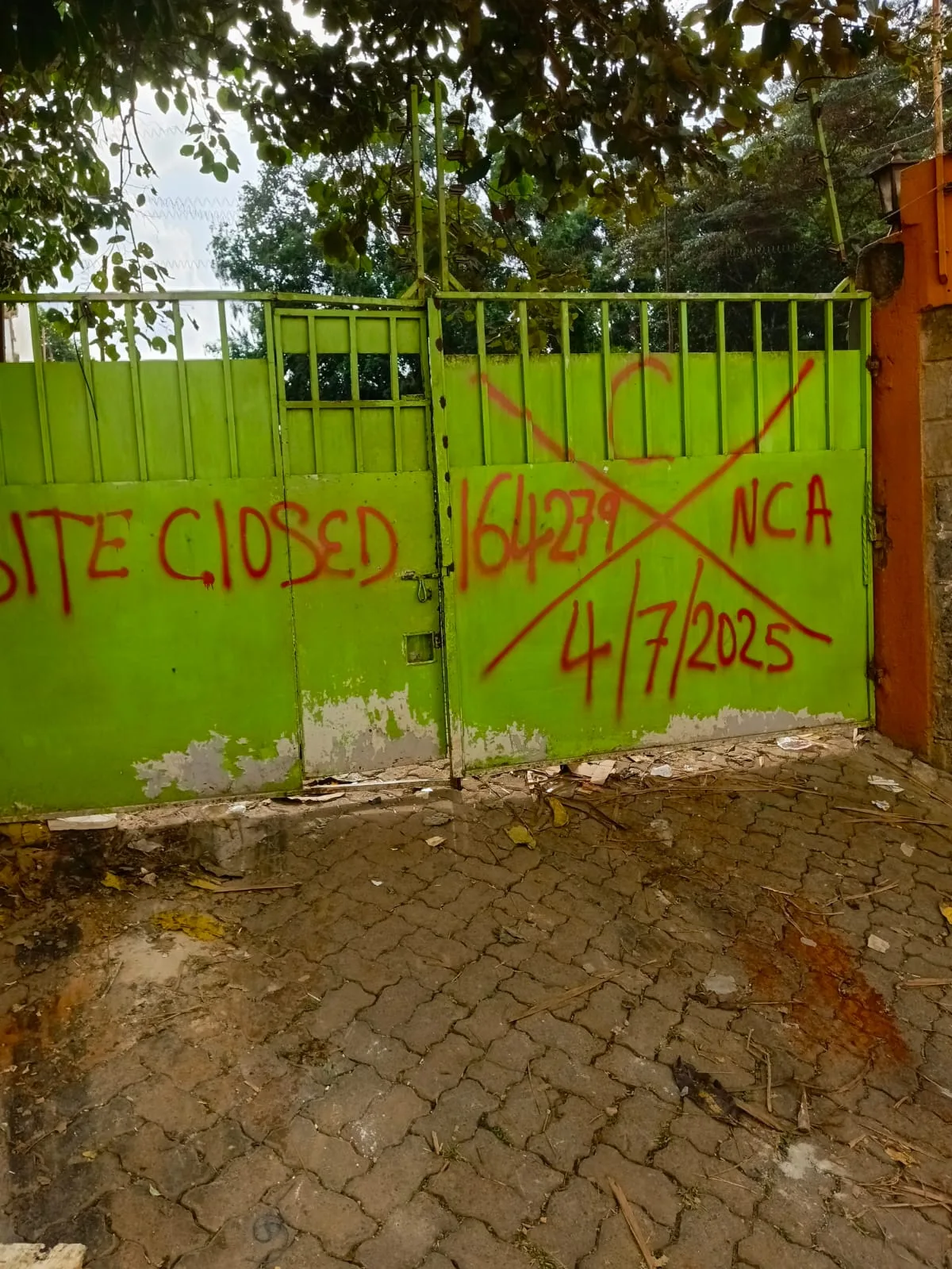Controversy is swirling around Baitul Hikma International Group of Schools, allegedly constructed on the riparian reserve of the Mathare River, with sewage reportedly discharged straight into the watercourse.
The school in question is owned by nominated Woman Representative Umulkher Harun Mohamed.
Investigations reveal that Baitul Hikma, located on plot no. 209/7546, Taza Lane off City Park Drive, was initially set up in a single residential house in 2022 before rapidly expanding into high-rise structures. Its location within the river’s protected buffer zone and the absence of a proper sewer system have raised serious environmental and public health concerns.
Residents decry an alarming lack of basic amenities, no playground, inadequate infrastructure and improper sanitation.
“We are living in fear of contracting cholera and other diseases… most of its wastes which include human effluents are usually discharged to the Mathare River on a daily basis.” Warned a school worker, speaking on condition of anonymity.
The apparent dumping of human waste into the river threatens to contaminate water sources and fuel outbreaks of cholera, dysentery and other waterborne diseases. During rainy seasons, such pollutants risk spreading rapidly into densely populated downstream communities.
Adding further fuel to controversy are bold statements from school administrators who have defiantly proclaimed themselves untouchable. One senior figure reportedly said the project continues unabated with backing from powerful connections in government, including alleged support from NEMA and county authorities.
Legal pressure is already building. Nairobi County Governor Johnson Sakaja earlier issued a directive requiring residents and developers to vacate riparian zones after the school constructed a swimming pool encroaching the riparian corridor.
Numerous court orders have been issued to halt illegal developments, yet reports indicate the school has ignored these rulings and continued construction.
Environmental law experts say structures built within 30 metres of riverbanks violate national regulations under the Water Act, Environmental Management and Coordination Act, and physical planning laws. The Mathare River, already heavily polluted, now faces additional risk from persistent toxic discharge.
Public anxiety is intensifying. With floods common along Mathare’s lower course, officials caution that unchecked development could worsen disasters, amplify disease spread, displace informal settlers and strain Nairobi’s fragile river restoration efforts .
Efforts to obtain comment from MP Umulkher Harun Mohamed, her school management, NEMA, WARMA, Nairobi County and the National Construction Authority have so far been unsuccessful.
The schools’ brazen defiance of environmental orders, disregard for public health, and continued operation, despite legal intervention, paint a scandalous portrait of privilege overriding accountability.
As riparian land continues to be reclaimed elsewhere, Baitul Hikma’s persistence sends a troubling message—that even protected riverbanks may be vulnerable when influential actors are involved.
Now, civil society, neighbours, and regulatory agencies must decide whether the rule of law still applies in Nairobi—especially when human life and an endangered river ecosystem hang in the balance.
Natonal Construction has already condemned the site and marked it closed




